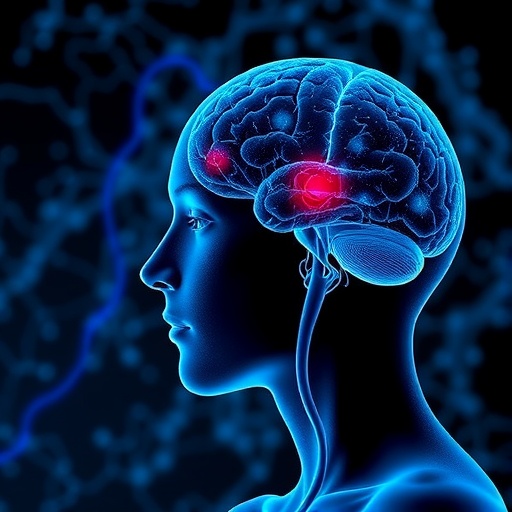In a groundbreaking advancement at the intersection of neuroscience and physiology, researchers led by Professor Tomás Ryan at Trinity College Dublin have unveiled compelling evidence demonstrating that the brain not only forms memories of cold experiences but actively leverages these memories to regulate the body’s metabolism. This pioneering study, recently published in the prestigious journal Nature, elucidates the neural underpinnings of how cold memory engrams form and subsequently modulate thermoregulatory processes, suggesting profound implications for both fundamental science and clinical applications.
Since the late 19th century, the scientific understanding of memory formation has evolved considerably, tracing roots back to Ivan Pavlov’s classical conditioning experiments. Pavlov famously established that animals could form associative memories linking environmental cues to physiological responses, such as dogs salivating upon hearing a bell previously paired with food. Expanding on this foundation, contemporary neuroscience reveals that memories reside in distributed networks of interconnected neurons termed engrams, which encode not only abstract experiences but also concrete bodily states, including inflammation, pain, and nutritional intake.
Against this backdrop, the current research team hypothesized that temperature experiences—specifically cold exposure—might be similarly encoded as neural engrams serving adaptive survival functions. To rigorously test this proposition, the researchers employed sophisticated behavioral conditioning paradigms combined with metabolic profiling. Mice were conditioned to associate a near-freezing 4°C environment with novel visual stimuli unique to the cold context. Importantly, upon subsequent exposure to these visual cues at comfortable room temperature, the mice exhibited anticipatory metabolic responses, increasing their energy expenditure to generate heat before any actual cold exposure.
This predictive thermogenesis indicates a remarkable neurobiological capability: the brain retrieves cold-associated memories and translates them into physiologically meaningful actions, modulating peripheral metabolic pathways preemptively. To decode the neural circuitry underlying this phenomenon, the team utilized activity-dependent genetic tagging within the hippocampus—an area long recognized for its role in memory consolidation. They successfully identified engram cells activated during cold conditioning. Using optogenetics, a cutting-edge technique that allows precise control of neuronal populations through light stimulation, the researchers demonstrated that artificial activation of these cold engram cells sufficed to elevate metabolic rate and thermogenesis even in the absence of external cold stimuli.
Conversely, optogenetic inhibition of these same engram cells impaired the animals’ ability to mount metabolic responses when presented with previously conditioned cold cues. These bidirectional manipulations provide compelling causal evidence that cold memory engrams are not merely epiphenomena but functional drivers of thermoregulatory homeostasis.
Delving deeper into the physiological effects, the study highlights the role of brown adipose tissue (BAT), commonly known as brown fat, in this learned metabolic control. Unlike white fat, BAT specializes in heat generation through mitochondrial uncoupling, serving as a critical effector in adaptive thermogenesis. Prof. Lydia Lynch, a key collaborator now at Princeton University, emphasized that the brain’s learned recollection of cold exposure likely modulates sympathetic innervation of brown fat, dynamically adjusting thermogenic output. This finding situates memory and metabolic control within an integrated neurophysiological axis, highlighting a feedback system where sensory input, memory consolidation, and peripheral effector organ function are tightly interwoven.
The practical implications of this discovery are multifaceted. Given that dysregulated thermogenesis and metabolic control underpin numerous clinical conditions—including obesity, metabolic syndrome, and certain cancers—deciphering how memory engrams influence these processes opens new therapeutic frontiers. Dr Aaron Douglas, joint lead author, suggests that targeted manipulation of cold memory circuits may one day represent a novel strategy for modulating metabolism in human patients, potentially complementing or superseding existing metabolic interventions.
Beyond translational medicine, this research enriches our understanding of the embodied mind, illustrating how visceral bodily experiences shape not only physiological homeostasis but also cognitive and emotional domains. The formation of cold memories exemplifies the broader principle that sophisticated human cognition and affective states are grounded in basic bodily representations encoded within neural substrates. Professor Ryan underscores this integrative perspective, noting that the evolutionary roots of complex mental operations lie in visceral sensory experiences, and decoding these links is imperative for unraveling the biological foundations of memory and emotion.
This study exemplifies the power of interdisciplinary collaboration, melding molecular neuroscience techniques with metabolic physiology and behavioral science. The convergence of methodology—from genetic tagging and optogenetics to metabolic measurements and behavioral conditioning—has enabled a rich, mechanistic portrait of cold memory formation and function. It signals a new chapter for neuroscience, where abstract cognitive processes are studied in concert with concrete physiological outputs, forging a holistic understanding of brain-body interactions.
Looking forward, multiple avenues beckon for further exploration. Investigating how other sensory modalities or physiological states form similar memory engrams, and how these memories influence decision-making, social behavior, or emotional regulation, promises to deepen insight into the embodied nature of cognition. Moreover, expanding this paradigm to human studies will be essential for clinical translation, where manipulating memory-driven metabolic circuits could redefine approaches to treating metabolic and affective disorders.
In sum, this landmark research establishes that memories of cold experiences are encoded within discrete hippocampal neuronal ensembles and that these memories orchestrate metabolic responses critical for thermoregulation. This neural-metabolic axis reveals an elegant adaptive strategy, wherein the brain anticipates environmental challenges through learned experiences and marshals physiological resources accordingly. By bridging memory science with metabolic control, the study opens transformative possibilities for both understanding the mind’s bodily foundations and harnessing this knowledge for innovative medical therapies.
Subject of Research: Neural encoding of cold experiences and their role in metabolic thermoregulation
Article Title: [Not explicitly provided]
News Publication Date: [Not explicitly provided]
Web References:
DOI: 10.1038/s41586-025-08902-6
References:
Study published in Nature
Keywords:
Memory formation, Memory disorders, Metabolism, Human brain, Animal research, Adaptive control, Body temperature regulation, Emotions, Memory recall
Tags: behavioral conditioning in neuroscienceclinical applications of memory researchimplications of cold memories on healthIvan Pavlov classical conditioning and memorymemories of cold exposuremetabolism regulation through memoryneural engrams and bodily statesneuroscience of thermoregulationphysiological responses to cold memoriestemperature experiences and survivaltemperature memory and metabolism connectionTrinity College Dublin neuroscience research





